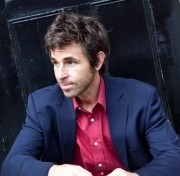Inside Therapy: Why It Hurts to Listen (But Why We Should)
Tuesday, July 17, 2012

The more we suffer, the more insufferable we may become. But that is the time we need to be listened to the most. Photo: SanFranAnnie/flickr
We all like to think of ourselves as caring people, but each of us has at one time or another avoided someone we know who’s in emotional turmoil. Perhaps that person was being erratic. Or demanding. Maybe even mean. For whatever reason, we found it very difficult to be around them.
Ironically, the behaviors that push people away are usually the direct result of feeling too alone to begin with. Painful losses, crippling fears, deep disappointments—experiences we’ve all known—trigger strong emotions, and when we feel too alone in the face of these emotions, they become overwhelming. That’s when we start to act crazy.
Not wired to be alone
But our emotions aren’t the problem; they’re natural. The problem is being too alone with them. Our culture tells us—in a variety of ways—that we’re supposed to be able to bear difficult emotional experiences on our own. We’re not. We are not designed for it. Humans beings are primed by evolution to reach out to one another for connection and support. When connection and support aren’t forthcoming, our feelings begin to overwhelm us.
So what’s to be done?
Traditionally, people turn to doctors when they’re suffering. Physicians today accomplish much by tending to our blood pressure, triglyceride levels, and a host of other objective measures of our body’s functioning. They manage long lines of patients, perform complex medical procedures, and deal with insurance companies. But something very few of them do anymore is listen.
What used to be the cornerstone of the healer’s art is all but lost on modern day medicine. Yet I am convinced that—when healers manage to do it well—listening provides a salve more powerful than anything manufactured by Merck or mass-produced by Medtronic.
Listening
Since I am a psychotherapist, not a physician, I’m barred from relying on expensive medical technologies and prescription drugs. Listening is the only diagnostic device I have and the only medicine I provide. I’ve spent 42 years learning how to do it—the last 20 of those in a focused, determined way—and still I fail more times than I succeed. Truly listening to another human being is one of the most difficult things we can do.
What makes it so hard? Why would we sooner shun people who are suffering than try to really listen to them?
Our nervous systems are designed by nature to seek emotional attunement with the people around us. It isn’t possible to open ourselves to someone in pain without feeling something of what they’re feeling. This means coming into contact with the parts of ourselves that suffer, too—parts of ourselves that most of us understandably go to great lengths to avoid.
But trying as it is, real listening is one of the most important—and rewarding—gifts we can offer one another. To feel someone’s distress alongside him is to give that person the experience of being seen and understood, the experience of not being alone with his pain and fear. When we do this for someone, we provide that sense of human solidarity and companionship without which no human heart can heal.
From poison to cure
And it’s healing for the listener, too. As we feel the core of another’s suffering, we feel our way towards a reconciliation with the inescapable losses of our own lives as well. When people help each other hold that pain, life’s inevitable losses and disappointments change from poison to cure—they constitute the very wounds that call out to be dressed.
To accompany someone who is suffering, we must remember—when that other person can not—that the terrible transience of life, and of our bodies, and our relationships, and all that we love, is the very thing that makes this passage precious.
In sonnet 73, Shakespeare reminds us:
“In me thou see’st the glowing of such fire
That on the ashes of his youth doth lie,
As the death-bed whereon it must expire,
Consum’d with that which it was nourish’d by.
This thou perceiv’st, which makes thy love more strong,
To love that well which thou must leave ere long.”

Helping someone feel less alone means sitting down and listening to them. It means knowing—even as their suffering awakens our own wounds—that by joining our humanity with theirs, even the most painful experiences can lead us not further away from life, but further into it.
Archie Roberts is a psychotherapist, professor, and writer. He's consulted to organizations around the world and makes his home in Providence. www.archieroberts.net
Related Articles
- Inside Therapy: Couples and Money
- Inside Therapy: Getting Therapy on Your Smartphone
- Inside Therapy: Give Placebos a Chance
- Inside Therapy: Stop Communicating and Pay Attention
- Inside Therapy: The Overselling of Body Disorders




 Delivered Free Every
Delivered Free Every
Follow us on Pinterest Google + Facebook Twitter See It Read It